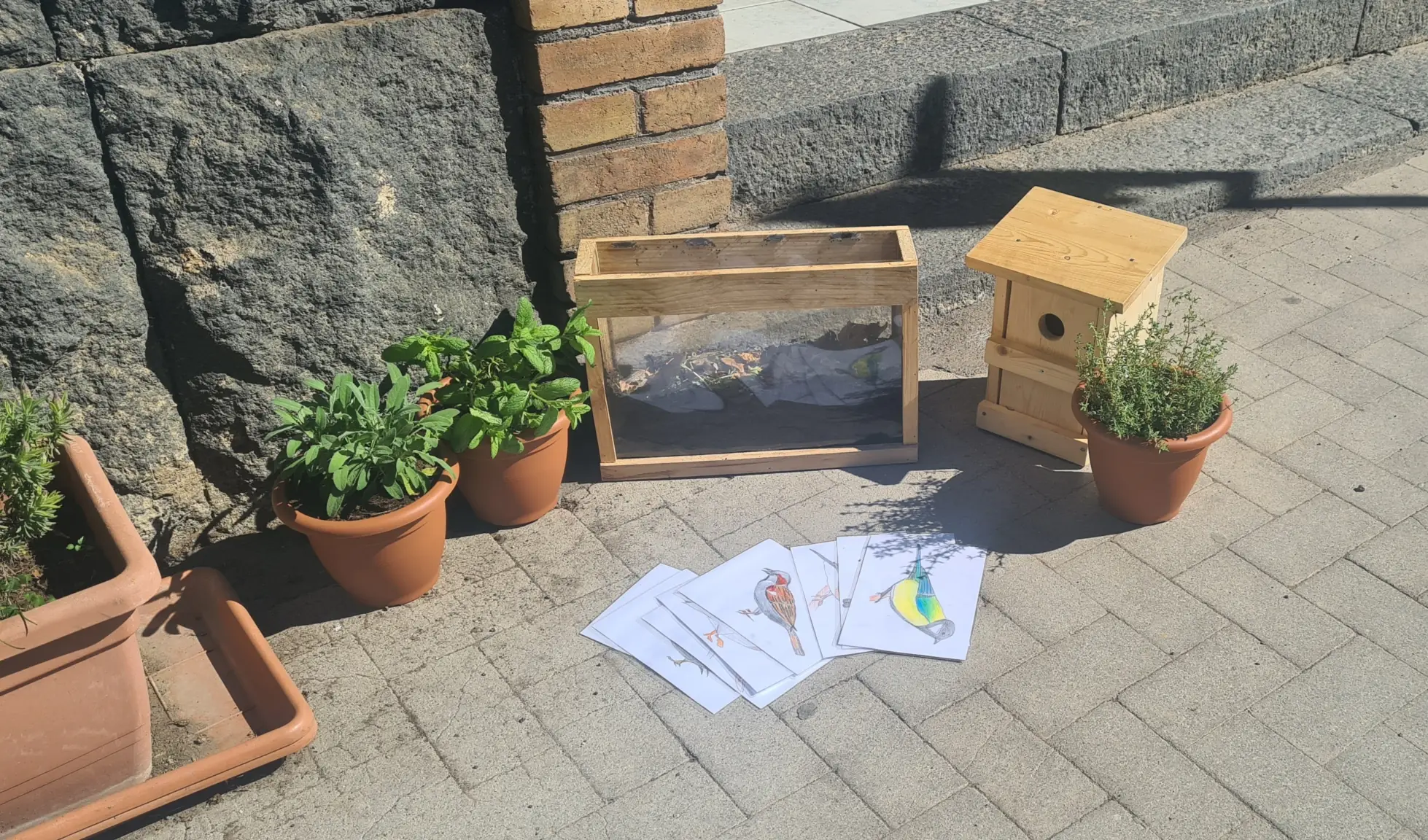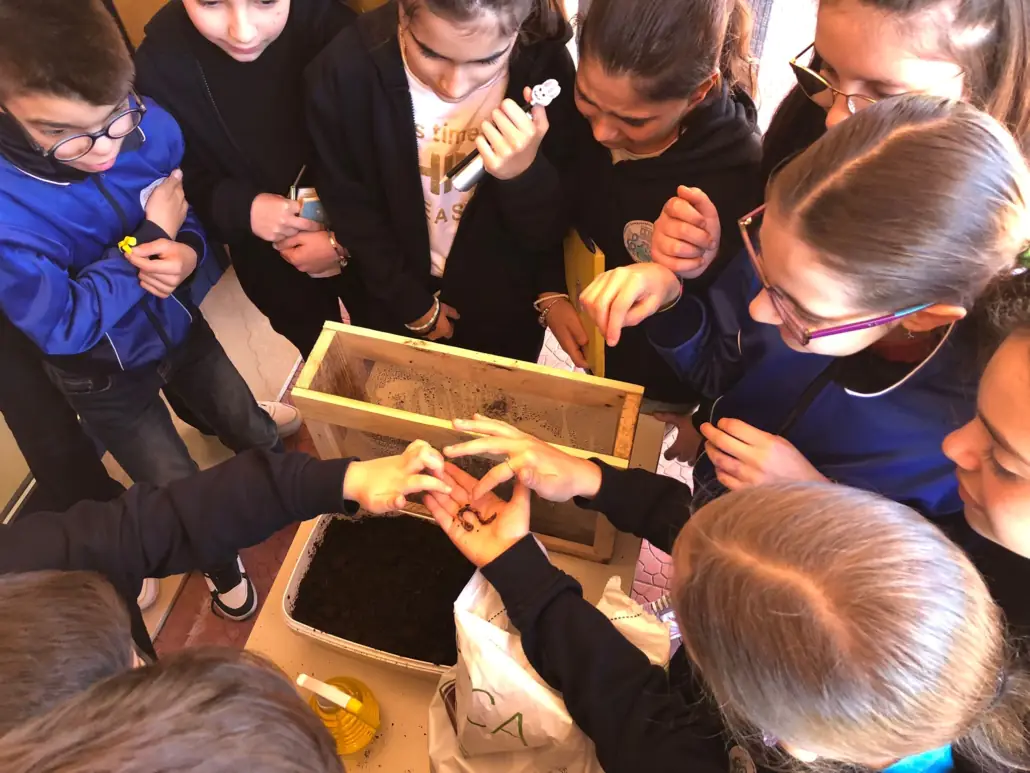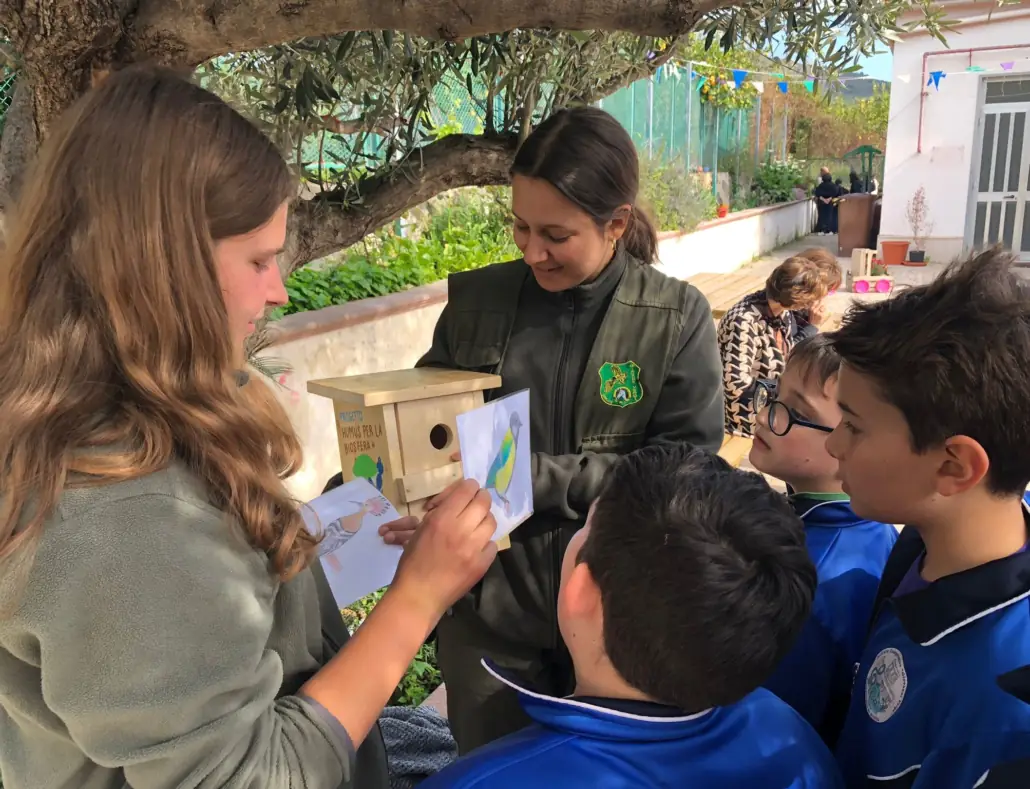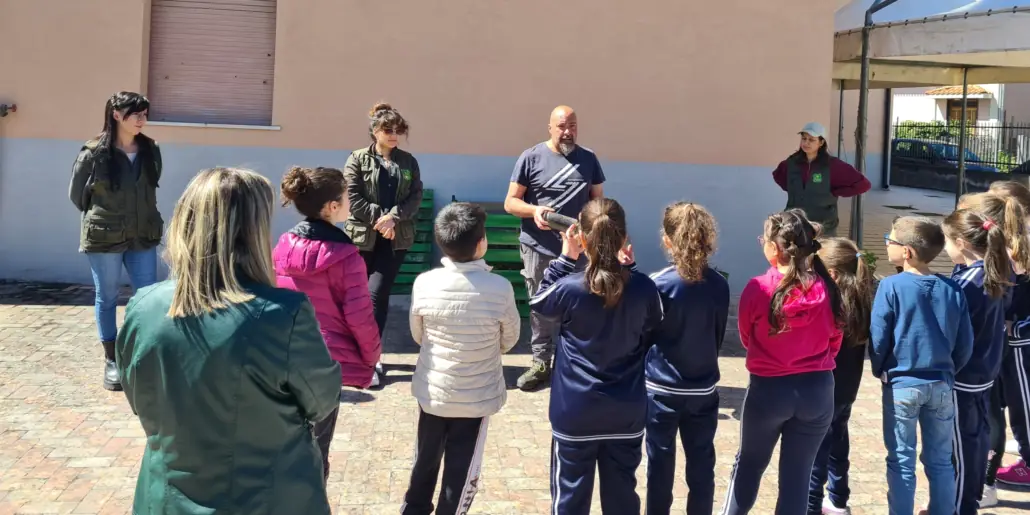Humus per la Biosfera – Outdoor Environmental Education
In April we started the second round of outdoor lessons in the schools of the project region around Mount Etna. In this part of the project the children gain practical experience on how to set up a compost and learn about the importance of biodiversity and soil organisms.

The lessons start with a short repetition of the previous indoor lesson. The children remember a lot of the content and can repeat the story in great detail. The following station work can then build on these basics. In total, there are three stations in which the children participate in groups. GVs international volunteers guide and assist with these stations.
One station deals with compost. Here the children learn why a compost needs layers and how they should be arranged. Furthermore, they get to collect sticks, leaves and weed from the school ground to start their compost. Then they learn how to take further care of their compost and what to do with the finished product.
At another station the children meet the earthworms, which they always look forward to. They get the possibility to hold the earthworms and experience how they feel and move. In the beginning, some children are a bit shy and afraid, but at the end everybody is curious enough to try it. They learn about the important role of the earthworms in the ecosystem and what other soil organisms can be found. From this station every school gets a transparent worm box to take care of. The classes will take turns with watering and feeding the earthworms.

Further the participants learn about biodiversity. They discover the advantages of birdhouses and understand the function of a stable ecosystem. They get an impression of the various forms of life, by listening to bird sounds and by smelling and seeing plants. In addition, every school receives a birdhouse.

At the end of a successful lesson the children gather for a final evaluation and to answer last questions.

The visits are a great possibility for the international volunteers to improve their Italian skills. Moreover, they sensitise the children for the environment and open their minds towards protection efforts.
